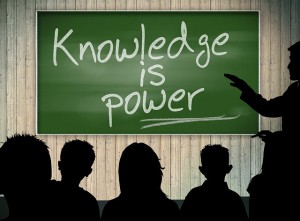Income inequality has quickly become one of the key talking points when it comes to the American economy and society as a whole. The gap between the haves and the have-nots has been getting larger and larger every year at an accelerating rate and it doesn’t seem like it’s going to stop any time soon. While there are many theories as to how to stop this from continuing (after all, it’s leading to the death of the middle class), one of the most popular theories is that increasing the quality of education will lower the gap and lead to a wealthier and happier society.
A recent study by the Brookings Institution has actually shown that while better education wouldn’t help with income inequality, it would help with our country’s overall economy. The study shows that while better education wouldn’t help so much when it comes to tackling income inequality itself, it would help the financial and economic situations of the poor due to the fact that they’d have more money and a stronger economy would allow their money to go farther. That being said, it should be known that increasing education will do nothing to bring down the wages at the top or the difference in money that the 1% have when compared to the rest of the country.
When the researchers simulated what would happen if a bachelors degree was awarded to someone who previously didn’t have one, they found what would seem to be obvious. Their chances of getting hired and boosting their current earnings would rise. The study ended up showing that if the rate of achievement in bachelor degrees was increased by only 10%, the reductions in median wages that occurred between 1979-2013 would basically be wiped clean and the economy as a whole would improve. While this is obviously much easier said than done, increasing the educational level and attainment in our country is clearly the first step towards improving our economy. Then we can focus on narrowing the wage gap.
If you’d like to read more, the link is here.